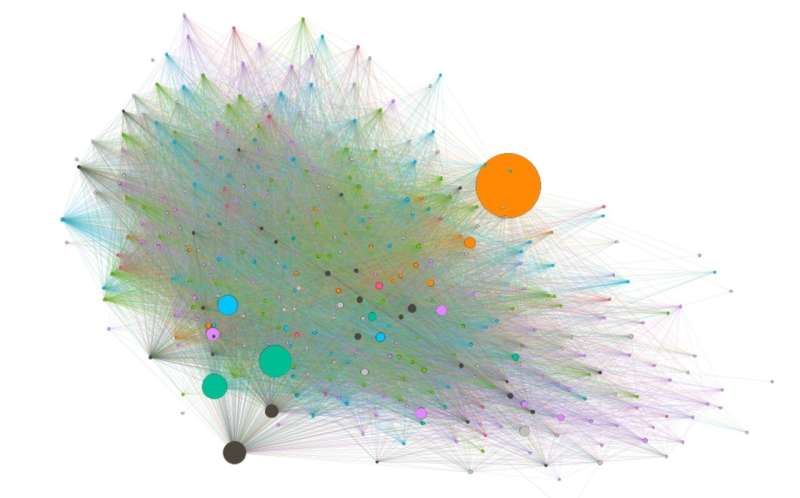This article has been reviewed according to Science X's editorial process and policies. Editors have highlighted the following attributes while ensuring the content's credibility:
fact-checked
proofread
Social media and the protection of refugees

Respect for human rights is one of the central goals of democracies. Wars and displacement, however, continue to pose major challenges to these universal rights, as Russia's current war in Ukraine or the "refugee crisis" in 2015/16 dramatically demonstrate. In this context, the EU project "Protect" analyzed the implications that changes in the legal system, governance, and social discourse have on international refugee protection.
The Department of Computational Social Science at the Institute for Social Sciences at the University of Stuttgart was particularly involved in the analysis of media data. The researchers examined how the European public is structured in social networks such as Facebook and whether it is organized around ideological groups. "The European public is structured by political fault lines that transcend national borders. This means that the much-discussed collective European public is characterized, among other things, by similar political conflicts," says Chair Holder Prof. Raphael Heiberger.
Networks have an impact on media relevance
In addition, the Stuttgart social scientists analyzed how agenda setting works in the discourse about migration and refugees on Twitter. It was found that parties, NGOs, and other institutions get more attention on Twitter if they have close ties with organizations in the same sector. "This means that the actual professional networks of an organization have an impact on media relevance," says Sara Hanke, who is leading the project at the University of Stuttgart.
"This has important implications for the social media strategy of organizations that can significantly contribute to the preservation and advancement of the rights of refugees and migrants."
The paper is published in the journal Javnost—The Public.
More information: Hakan G. Sicakkan et al, Between Europeanism and Nativism: Exploring a Cleavage Model of European Public Sphere in Social Media, Javnost—The Public (2022). DOI: 10.1080/13183222.2022.2067724
Provided by Universität Stuttgart





















